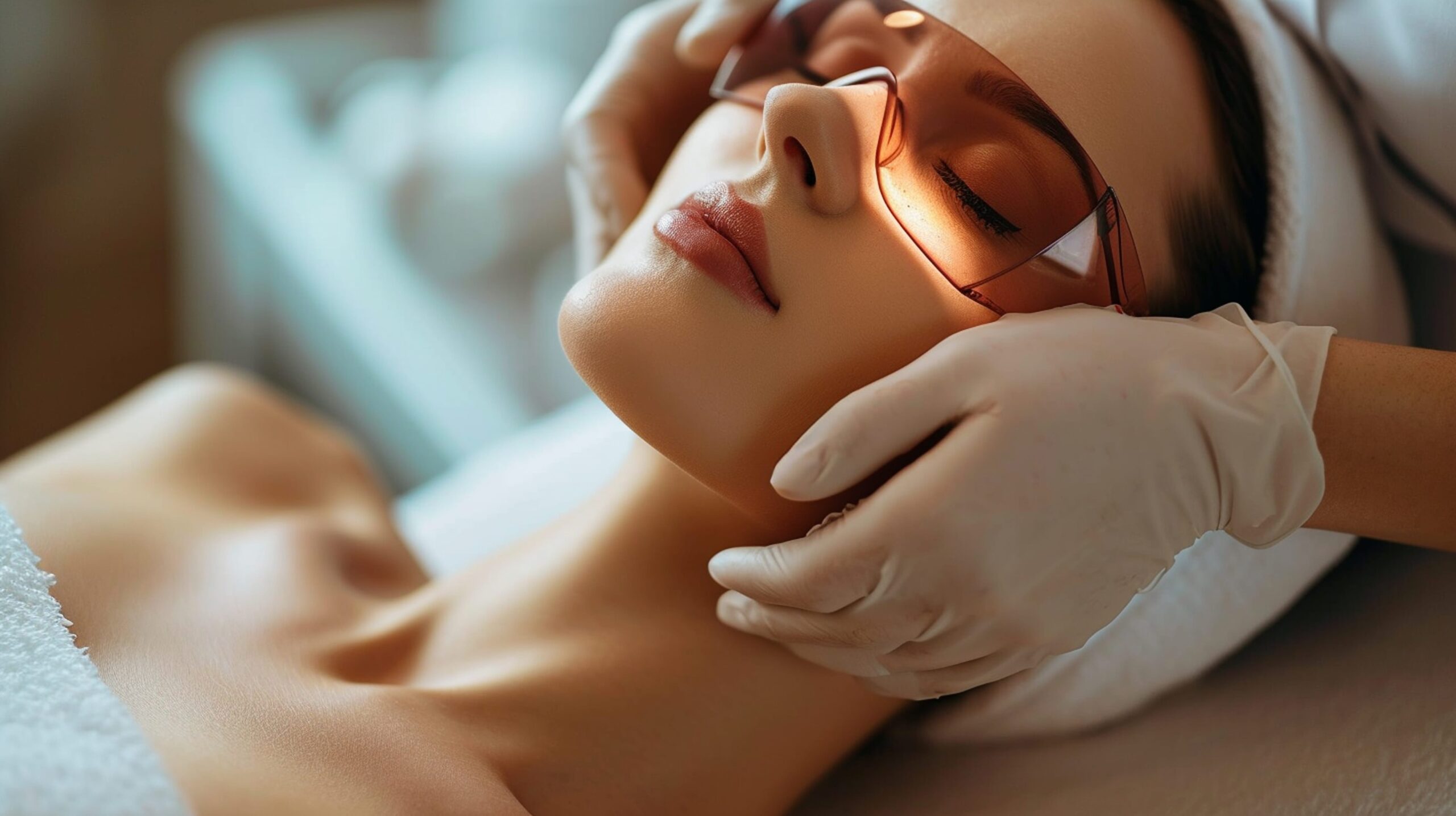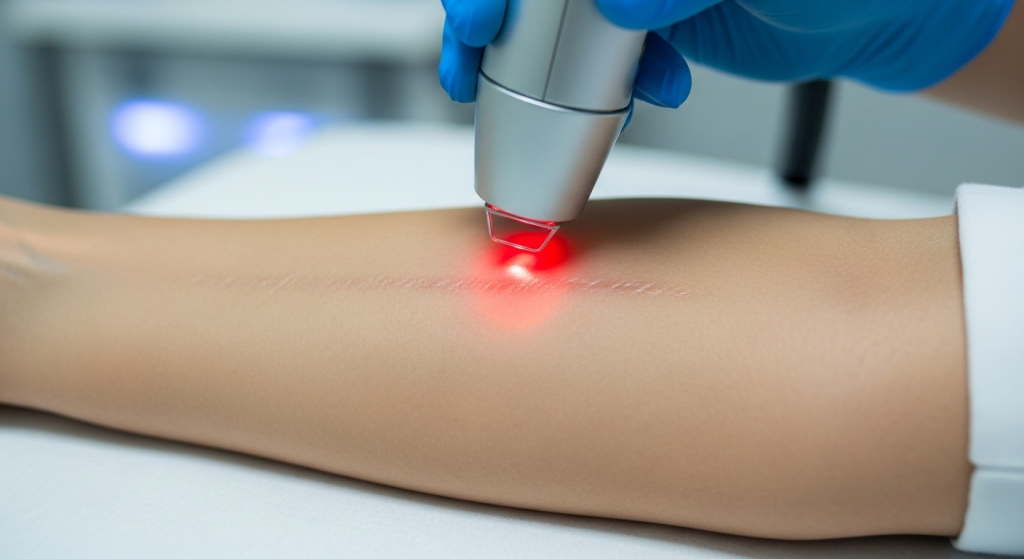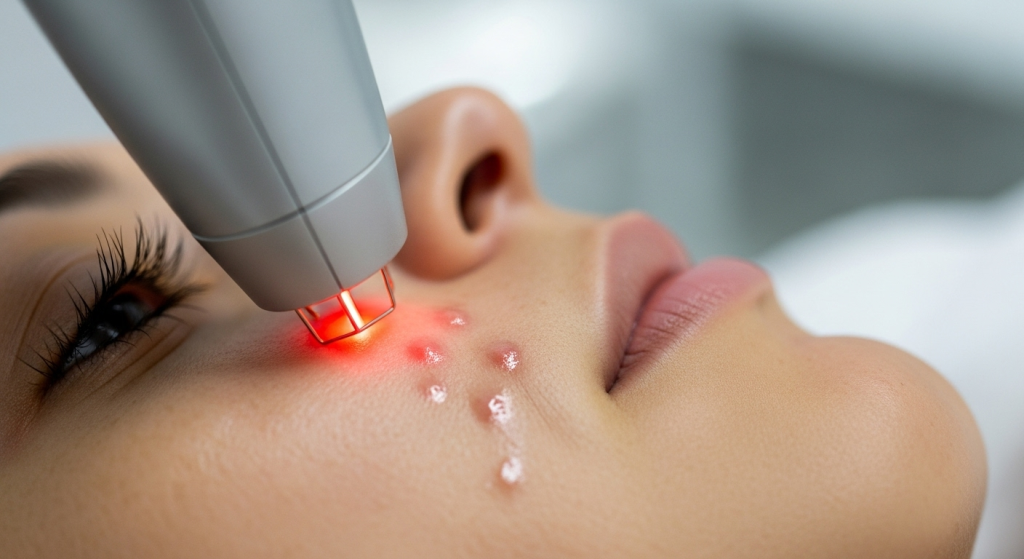
For many people, acne scars are more than skin-deep; they affect self-confidence, emotional well-being, and even how they interact with others. In the past, traditional treatments like topical creams, microdermabrasion, and chemical peels offered limited results. But with today’s medical innovations, laser acne scar treatment and laser scar removal have become the gold standard for achieving smoother, clearer, and rejuvenated skin.
Modern laser technology doesn’t just reduce scars; it rebuilds skin structure from within. Using controlled light energy, these treatments stimulate collagen production, improve texture, and even out pigmentation. Whether the scars are from acne, surgery, or injury, lasers offer a precise and highly customizable solution for lasting results.
How Laser Treatment Works: A Closer Look Beneath the Skin
At its core, laser acne scar treatment works by delivering focused light energy into targeted areas of the skin. This energy penetrates deep into the dermis, breaking down scar tissue and triggering the skin’s natural healing process. As new collagen forms, the skin gradually becomes smoother, firmer, and more uniform in tone.
There are two primary types of laser systems used in scar treatment:
- Ablative Lasers: These remove thin layers of damaged skin, promoting intense collagen regeneration. Examples include CO₂ and Er:YAG lasers, ideal for deep acne scars.
- Non-Ablative Lasers: These stimulate collagen growth without removing surface layers. They’re best suited for mild to moderate scars with minimal downtime.
Advanced devices often combine both technologies for optimal results, balancing effectiveness with comfort and recovery time.
Why Laser Treatment Stands Out from Traditional Methods
What sets laser scar removal apart from older methods is its precision. Unlike creams or dermabrasion, lasers target the deeper layers of the skin where scars form. This allows for a more complete and lasting transformation.
Key benefits include:
- Minimal downtime: Most patients can resume daily activities within 24 to 48 hours.
- Customizable intensity: Treatments are tailored to your specific skin type and scar depth.
- Long-term results: Collagen remodeling continues for months after treatment, improving results over time.
- Safe for most skin tones: Modern fractional and picosecond lasers are designed to minimize pigmentation risks.
In essence, laser technology bridges the gap between cosmetic and medical science, delivering visible change through cellular renewal.
The Role of Collagen in Scar Healing
Collagen is the protein responsible for the skin’s structure and elasticity. When acne or injury damages the skin, collagen fibers can form irregularly, creating raised or depressed scars.
Laser acne scar treatment helps correct this imbalance. By heating the underlying layers of skin, the laser triggers fibroblasts (the cells responsible for collagen production) to rebuild and reorganize fibers. Over several sessions, the skin surface evens out, and scars fade dramatically.
It’s a regenerative process; your body repairs itself, guided by technology.
Types of Scars That Benefit from Laser Treatment
Not all scars are created equal, but laser therapies can address nearly all of them. Ice pick scars are deep and narrow and typically respond well to fractional CO₂ laser treatment. Boxcar scars, which appear as sharp-edged depressions, can be treated using Er:YAG or fractional lasers. Rolling scars, characterized by a wavy texture, often respond best to non-ablative lasers combined with microneedling. Meanwhile, hypertrophic or raised scars benefit from pulsed dye or Nd:YAG lasers.
Each type of scar requires a tailored approach, and dermatologists carefully assess the skin before recommending the most effective laser option.
The Treatment Experience: What to Expect
Before undergoing laser treatment, a detailed consultation is essential. Your dermatologist assesses scar types, skin tone, and sensitivity to customize a treatment plan.
Typical treatment process:
- Preparation: The skin is cleansed, and a topical anesthetic is applied for comfort.
- Laser Session: The laser device emits controlled pulses of light that penetrate the skin’s surface.
- Cooling & Recovery: Mild redness and swelling may occur but usually subside within a day or two.
- Aftercare: Sunscreen, hydration, and gentle cleansing are key to optimal healing.
Most patients notice visible improvement after 2 to 3 sessions, with full results appearing after a series of 4 to 6 treatments.
Combining Laser Treatment with Other Therapies
For enhanced outcomes, dermatologists often pair laser scar removal with complementary procedures such as microneedling, PRP (Platelet-Rich Plasma), or chemical peels. Microneedling stimulates deeper collagen repair, PRP accelerates healing and enhances glow, and peels help brighten pigmentation between sessions. This multi-layered approach amplifies results and shortens recovery time.
Are Laser Treatments Safe for All Skin Types?
In the past, laser therapy was primarily recommended for lighter skin tones. However, advancements in technology have expanded safety across a wide range of complexions. Devices like fractional and Q-switched lasers allow precise energy control, minimizing the risk of pigmentation changes.
Dermatologists can adjust wavelength settings and cooling systems to ensure comfort and safety, making laser scar removal suitable for nearly every skin type.
Results That Speak for Themselves
Patients who undergo laser acne scar treatment often report smoother skin, reduced scar visibility, and an overall boost in self-esteem. Results vary depending on scar severity and treatment frequency, but most experience visible improvements after just a few sessions.
The best part? The effects are long-lasting because they’re built on your skin’s natural collagen response rather than temporary surface fixes.
Conclusion
Laser scar removal is more than a cosmetic enhancement; it’s a journey toward self-confidence and skin health. With each session, you’re not just fading scars; you’re restoring the skin’s natural vitality.
By combining precision technology with the body’s inherent ability to heal, laser treatments have redefined what’s possible in dermatology. Whether you’re dealing with stubborn acne scars or post-surgical marks, today’s laser innovations offer a clear path to renewed confidence and radiant skin.
Queens Medical Center continues to lead the way in innovative skincare solutions. With advanced laser technologies and a team of expert dermatologists, the centre offers safe and effective treatments for acne scars, pigmentation, and other complex skin concerns.
By combining medical precision with personalized care, Queens Medical Center helps patients regain confidence through clearer, healthier skin. The clinic provides transparent consultations, tailored treatment plans, and competitive pricing, ensuring every client receives exceptional value and results.
Those seeking expert laser acne scar treatment rely on Queens Medical Center for trusted, transformative care that delivers visible improvements and renewed self-assurance.

